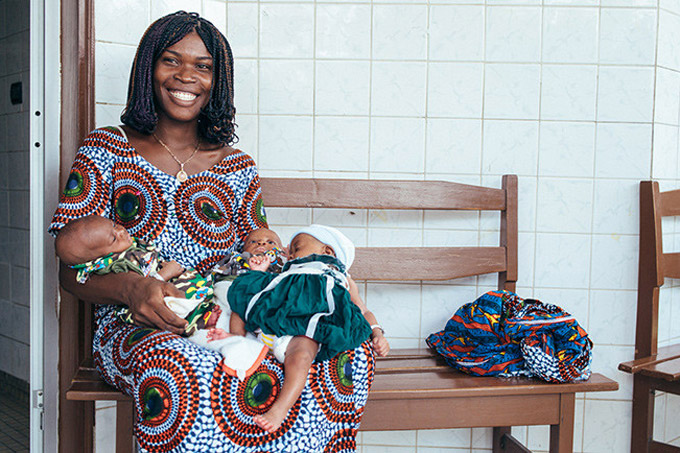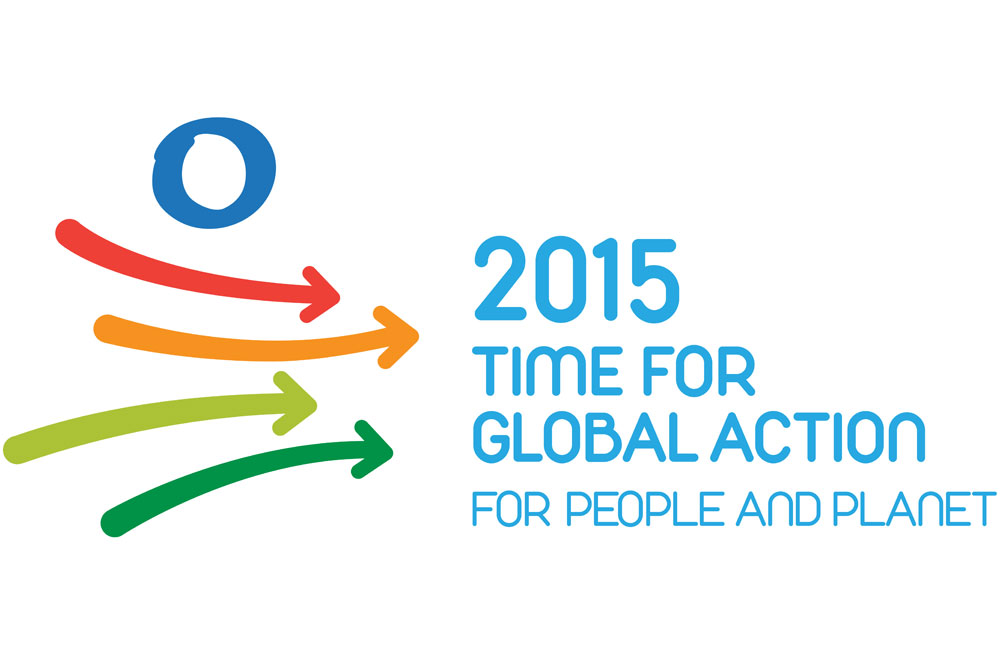Millennium Development Goals (MDGs)
The Millennium Declaration ![]() and the Millennium Development Goals (MDGs) adopted by the United Nations General Assembly in September 2000 come to end in 2015. Endorsed by 189 countries (at the time), the MDGs have indeed been an unprecedented global effort to achieve eight measurable development goals that were identified collectively.
and the Millennium Development Goals (MDGs) adopted by the United Nations General Assembly in September 2000 come to end in 2015. Endorsed by 189 countries (at the time), the MDGs have indeed been an unprecedented global effort to achieve eight measurable development goals that were identified collectively.
Millennium Development Goals (MDGs):
- To eradicate extreme poverty and hunger
- To achieve universal primary education
- To promote gender equality
- To reduce child mortality
- To improve maternal health
- To combat HIV/AIDS, malaria, and other diseases
- To ensure environmental sustainability
- To develop a global partnership for development
The adoption of the goals has been lauded as a commendable effort by the international community’s efforts towards eradicating poverty, accelerating human development, integrating the African continent into the 21st century global economy and making globalization more beneficial to the peoples of Africa.
Impact
"The MDGs prove that goal setting can lift millions of people out of poverty, empower women and girls, improve health and well-being, and provide vast new opportunities for better lives.”
-- MDGs Report 2015
The MDGs provided a powerful framework for tackling poverty and have galvanized national, regional and global efforts towards promoting human development. African countries have shown considerable commitment in the pursuit of the Goals and have pursued bold and innovative strategies in order to scale up progress towards their achievement.
The African Union Assembly, at its fifth ordinary session in Sirte, Libya, in July 2005, adopted a declaration on the review of the Millennium Development Goals Assembly/AU/Decl.1(V) ![]() , in which it took a number of important decisions, including the need to continue to develop and effectively implement economic and social policies which are of benefit to the poor segment of the African population.
, in which it took a number of important decisions, including the need to continue to develop and effectively implement economic and social policies which are of benefit to the poor segment of the African population.
As a result, Africa made commendable progress towards several of the targets, including in:
- primary school enrolment,
- gender equality, and
- tackling the incidence of malaria and the HIV/AIDS pandemic.

Abissdoum Charlotte, 26, with her 7-week-old triplets, Morouta, Nasifaté and Nasif, is receiving postnatal and newborn care at the Cooperative Clinic of Sikecoudji, in Cotonou, Benin. Photo: UNFPA/Ollivier Girard
Persisting Challenges
Despite such gains, challenges remain. Poverty rates on the continent remain unacceptably high and the goal of food security eludes many African countries, particularly in sub-Saharan Africa. These challenges are exacerbated by persistent inequality as well as high rates of unemployment, in particular among the continent’s burgeoning youth population. Africa continues to suffer from high rates of child and maternal mortality. In addition, while the incidence of conflict in Africa has declined, recurring conflicts in some countries of the region constitute a daunting challenge.

Towards the Sustainable Development Goals (SDGs)
In his March 2014 Report on United Nations System Support for the New Partnership for Africa’s Development (E/AC.51/2014/3), the UN Secretary-General noted, among other things that:
- as the deadline for the MDGs fast approaches, the United Nations System should redouble its efforts towards accelerating the Goals process in Africa;
- the United Nations System should work to ensure that the post-2015 development agenda reflects the priorities highlighted in the African common position on the post-2015 development agenda. The priorities include:
- structural economic transformation and inclusive growth, including industrialization;
- science, technology and innovation;
- people-centred development, including education, health care, gender equality and women’s empowerment, and harnessing Africa’s youth population;
- environmental sustainability;
- natural resources management and risk management of natural disasters;
- peace and security; and
- finance and partnerships.
Likewise, in the context of the implementation of the outcome document of the United Nations Conference on Sustainable Development and ongoing global consultations on the Sustainable Development Goals (SDGs), he urged that the United Nations System should continue to articulate and support the inclusion of Africa’s sustainable development vision, priorities and aspirations.
It has also been stressed that bolder actions are needed, both by African countries and the continent’s development partners, to overcome challenges and fast-track progress over the next two years. A vital aspect of this push will be for Africa’s development partners to meet their commitments to the continent, particularly those relating to aid, trade, aid for trade, external debt, financing, foreign direct investment.
Africa Week 2015

This year, Africa Week will be held from 12 to 16 October 2015. It will be celebrated in the context of the 70th anniversary of the founding of the United Nations under the theme, “Agenda 2063 and the 2030 Agenda for Sustainable Development: Moving from Aspirations to Reality”.




